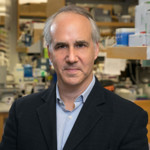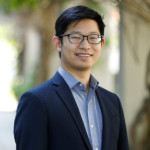May 11, 2020
Achieving Precision Health in Neuropsychiatry
featuring Distinguished Speaker,
Dr. Dan Geschwind
UCI Precision Health through Artificial Intelligence Initiative presents an online lecture program Thursday, May 28 from 4-6 p.m.
| 4-4:50 p.m. | Integrative Genomics in Psychiatric Disease – Dan Geschwind |
| 4:50-5:00 p.m. | Q&A |
| 5-5:30 p.m. | Deep Learning for Medical Image Analysis – Xiaohui Xie |
| 5:30-5:40 p.m. | Leveraging Expertise Across UCI to Identify Vulnerable COVID-19 Patients – Daniel Chow |
| 5:40-6 p.m. | Fireside chat |
Attendees can watch the lecture via Zoom Webinar or YouTube and can submit questions in both platforms’ Q&A boxes. Registration is required.

Dan Geschwind M.D., Ph.D.
Gordon and Virginia MacDonald Distinguished Professor in Neurology, Psychiatry and Human Genetics
Director of the Institute for Precision Health, Senior Associate Dean and Associate Vice Chancellor Precision Health

Xiaohui Xie, Ph.D.
Professor, Department of Computer Science, Donald Bren School of Information and Computer Sciences

Daniel Chow, M.D.
Assistant Professor-in-Residence
Departments of Radiological Sciences and Neurology
Co-Director, Center for Artificial Intelligence in Diagnostic Medicine (CAIDM)
Co-Director, Precision Health through Artificial Intelligence
About Dan Geschwind
Dr. Geschwind is the Gordon and Virginia MacDonald Distinguished Professor of Human Genetics, Neurology and Psychiatry at the University of California, Los Angeles. In his capacity as Senior Associate Dean and Associate Vice Chancellor of Precision Health, he leads the Institute for Precision Health (IPH) at UCLA, where he is responsible for overseeing campus and health system-wide precision health initiatives. At UCLA, he and his colleagues have developed innovative approaches, including an electronic video consent for universal consent that is the cornerstone of the collection arm of the UCLA ATLAS DNA biobank. This initiative is genotyping at least 150,000 UCLA patients over the next three years. The IPH is developing centers focusing on Digital health, the Center for SMART health, and clinical genetics and genomics, the California Center for Rare Diseases. In his laboratory, his group has pioneered the application of systems biology methods in neurologic and psychiatric disease, with a focus on autism spectrum disorders (ASD) and neurodegenerative conditions. He has served on several scientific advisory boards, including the Faculty of 1000 Medicine, the Scientific Advisory Board for the Allen Institute for Brain Science, the NIMH Advisory Council and the NIH Council of Councils. He has published over 400 papers and currently serves on the editorial boards of Cell, Neuron and Science. He has received several awards for his laboratory’s work and leadership including the Ruane Prize from the Brain and Behavior Foundation in 2013 and the Derek Denny-Brown Neurological Scholar Award from the American Neurological Association (ANA) in 2004. He is an elected Member of the American Association of Physicians and the National Academy of Medicine.
Abstract: Integrative Genomics in Psychiatric Disease
A major challenge facing modern medicine is translating advances in genetics and genomics into a better understanding of disease mechanisms and trajectories and eventually patient care. This is the promise of precision medicine. Dr. Geschwind will briefly describe efforts at UCLA to build precision health infrastructure and clinically facing genomic medicine. He will describe challenges in moving from genetic findings to disease mechanisms and eventually treatments, in complex neuropsychiatric diseases such as autism.
About Xiaohui Xie
Dr. Xiaohui Xie is a Professor of Computer Science at the University of California, Irvine. He received his Ph.D. in neural computation with Sebastian Seung from Massachusetts Institute of Technology, and completed his postdoctoral training with Eric Lander at the Broad Institute of MIT and Harvard. He has been with UCI faculty since 2007 and was promoted to full professor in 2015. Dr. Xie’s research focuses on AI/Machine Learning and its application in life science and healthcare. He has published over 120 peer-reviewed publications in top journals and conferences with an H-index of 52 and over 27,000 citations. Dr. Xie was an NSF CAREER award winner. He is a member of UCI’s Precision Health through Artificial Intelligence Initiative and the associate director of Institute of Genomics and Bioinformatics at UCI.
Abstract: Deep Learning For Medical Image Analysis
Deep learning is providing exciting solutions for medical image analysis problems and is seen as a key method in the pursuit of automating medical analysis for disease diagnosis, quantification and treatment planning. However, there are significant challenges in the application of deep learning to medical image analysis, including issues related to data availability, annotation quality and consistency, model interpretation and generalization. In this talk, he will discuss recent attempts of addressing some of these challenges. He will present efforts on two particular applications – one for organs-at-risk delineation in the context of radiation therapy planning, and the other on chest CT analysis for detecting and quantifying lung diseases.
About Daniel Chow
Daniel S. Chow joined the University of California, Irvine in 2016. He currently serves as co-director for the Center for Artificial Intelligence in Diagnostic Medicine, co-director for the Precision Health through Artificial Intelligence Initiative and assistant professor-in-residence for the Department of Radiological Sciences and Neurology.
Dr. Chow completed his medical degree at the University of California, Los Angeles. He subsequently completed his radiology residency at Columbia University Medical Center through the Leonard Holman Research Pathway. During his residency, Dr. Chow received numerous awards including the RSNA Roentgen Resident/Fellow Research Award, ARRS Resident in Radiology President’s Award, and RSNA Resident Research Grant Award. After completing his residency, he completed his neuroradiology fellowship training at the University of California, San Francisco.
Dr. Chow provides his expertise to several professional organizations with a focus on clinical applications for artificial intelligence tools. He works regularly with students and other researchers by providing guidance and assistance in designing studies that seek to leverage artificial intelligence for biomedical applications.
Abstract: Leveraging Expertise Across UCI to Identify Vulnerable COVID-19 Patients
The rapid spread of coronavirus disease 2019 (COVID-19) revealed significant constraints in critical care capacity. In anticipation of subsequent waves, reliable prediction of disease severity is essential for critical care capacity management and may enable earlier targeted interventions to improve patient outcomes. Our group asked if clinical and laboratory features could be modeled to identify COVID-19 patients vulnerable to severe outcomes at presentation to medical care, and provide individualized risk assessment. Dr. Chow will share the experience of our COVID work, and how we moved quickly from clinical development, validation, and deployment of clinical tools at UCI Health.
